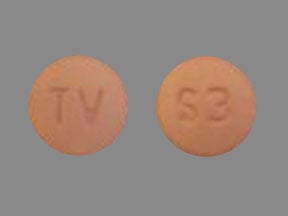
Nexavar Coupons & Savings Card – Discount Prices from $4561.46
Brand for: Sorafenib
My prescription
Edit
200MG, Sorafenib (120 Tablets)
Select pharmacy

CVS
$21696.32
COUPON PRICE
Albertsons
$4561.46
COUPON PRICE
Walgreens
$5553.75
COUPON PRICE
Walmart
$20816.51
COUPON PRICENexavar savings card
Show this card to your pharmacist
Albertsons
$4561.46
BIN
ID
PCN
GRP
019876
LHF4F4EF73
CHIPPO
LHX
Powered by
Related kinase inhibitors prescriptions
More prescriptions for renal cancer
Related kinase inhibitors prescriptions
More prescriptions for renal cancer
Nexavar (Sorafenib) dosage forms
Dosage Quantity Price from Per unit 200MG 120 Tablets $4561.46 $38.01
| Dosage | Quantity | Price from | Per unit |
|---|---|---|---|
| 200MG | 120 Tablets | $4561.46 | $38.01 |
What is Nexavar used for?
Nexavar is used to treat certain types of cancer, including advanced renal cell carcinoma (kidney cancer), unresectable hepatocellular carcinoma (liver cancer), and differentiated thyroid carcinoma that is refractory to radioactive iodine treatment.
What is the success rate of Nexavar?
The success rate of Nexavar (sorafenib) can vary depending on the type and stage of cancer being treated. In clinical trials, Nexavar has shown to improve progression-free survival in certain types of cancer, such as advanced renal cell carcinoma and hepatocellular carcinoma. However, the response rate and overall survival benefit can differ among individuals. It is important for patients to discuss their specific case with their healthcare provider to understand the potential benefits and outcomes of using Nexavar for their condition.
How much does Nexavar cost?
The cost of Nexavar can vary significantly depending on factors such as the pharmacy, location, insurance coverage, and dosage prescribed. It is recommended to check with local pharmacies or consult with a healthcare provider or insurance company for the most accurate and up-to-date pricing information. Additionally, patient assistance programs may be available to help offset the cost for eligible individuals.
What is the survival rate for sorafenib?
The survival rate for patients taking sorafenib can vary depending on the type and stage of cancer being treated. Sorafenib is commonly used for advanced liver cancer (hepatocellular carcinoma) and advanced kidney cancer (renal cell carcinoma). In clinical trials, sorafenib has been shown to extend median overall survival by several months compared to placebo. However, individual outcomes can differ based on various factors, including the patient's overall health, cancer progression, and response to treatment. It is important for patients to discuss their specific prognosis with their healthcare provider.
How much does Nexavar cost without insurance?
The cost of Nexavar without insurance can vary significantly depending on the pharmacy and location. On average, the price for a 30-day supply of Nexavar can range from $5,000 to $10,000. It is advisable for individuals to check with local pharmacies for the most accurate pricing and explore any available patient assistance programs that may help reduce the cost.
